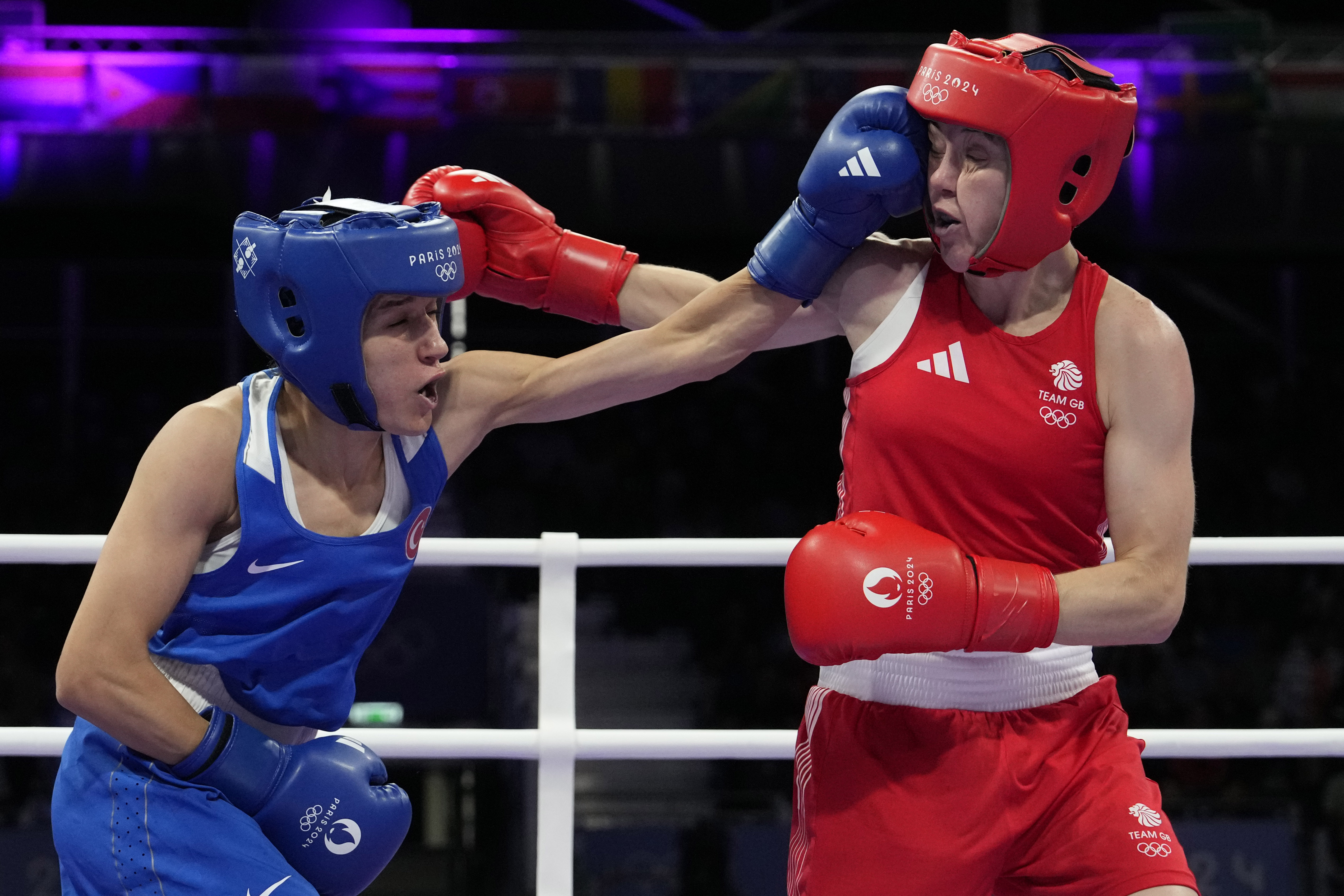VILLEPINTE, France (AP) — Gennady Golovkin believes he owes his incredible boxing career in part to his Olympic beginnings, and the possibility of his sport vanishing after the Paris Games has staggered one of the greatest fighters of his generation.
“The situation is sad,” Golovkin told The Associated Press recently. ”The question of boxing being not certain for the LA Olympics is not just upsetting, but I just cannot believe that this might happen. I believe we need to take maximum effort, all of us, to avoid it, to find a way out of this depressing situation.”
That situation has been building for years, and time is dwindling to find a solution.
By early 2025, the International Olympic Committee wants boxing to line up behind a reputable governing body that isn’t the beleaguered International Boxing Association, which is still fighting an Olympic ban that seems unlikely to be lifted. Dozens of national federations already have left the IBA to join a breakaway governing body called World Boxing, but nobody can be certain whether it will gain enough members or traction to persuade the IOC to save the Olympic place of an ancient sport.
“If we fail to keep boxing in the Olympics, it will be a tragedy,” said Golovkin, a silver medalist and breakout star of the Athens Olympics in 2004.
And it would be more than a personal tragedy: Golovkin has been the president of Kazakhstan’s national Olympic committee since February, and his nation has won more Olympic medals in boxing (24) than in any other sport.
What might be the final Olympic boxing tournament got underway Saturday in the Villepinte suburb of Paris with all the usual delights and annoyances of this idiosyncratic version of the sport. Fighters from across the world, many with wildly different styles, come together for fights of three-minute rounds that can be both tedious and brilliant.
Boxing has been in every edition of the modern Olympics except one since 1904. During the sport’s heyday in the mid-20th century, boxing was one of the Games’ glamour sports, crowning dozens of gold medalists who went on to become the biggest names in the professional game.
While Golovkin, Andre Ward and Alexander Povetkin used their success in Athens to jump-start their pro careers, that path has been used by fewer and fewer top fighters over the ensuing two decades while the line between amateurs and professionals faded.
Pro boxers have been allowed to compete at the Olympics since Rio de Janeiro in 2016, and dozens of fighters with pro experience now compete — albeit none of the world’s best professionals, who don’t have the time or the inclination to jump through Olympic hoops.
But boxing would be a major loss for the Olympics for several reasons. Along with its lengthy history in the Games, boxing always brings in athletes from nations around the globe without the resources to excel in team sports — and half of those athletes are now women, who got their first chance to fight at the Olympics only in 2012. The IOC specifically cited boxing’s “universality and high social inclusivity” as reasons it wouldn’t give up entirely on the sport.
But the IOC has broken with the IBA after years of conflict finally resulted in its suspension before the Tokyo Olympics, followed by complete banishment. The IBA’s Russian president, Umar Kremlev, has vowed to defeat the IOC by appealing to the Swiss Federal Tribunal after the Court of Arbitration for Sport rejected his appeal.
In the absence of a governing body, the IOC organized the Tokyo and Paris boxing tournaments but has vowed not do it again for Los Angeles in 2028. Even though the number of women fighting in Paris was boosted, the IOC also shrunk the size of the overall field to just 248 total fighters for the smallest Olympic tournament since 1956.
World Boxing has grown steadily since its establishment last year by several Western nations tired of the IBA, and its leadership held its first formal meeting with the IOC last May. The group added four more national federations, including Italy and South Korea, on Friday to bring its total to 37 members on five continents.
Yet the majority of the world’s national federations remain loyal to the IBA, which has provided funds to bolster many of those federations for many years.
Golovkin strongly suggested to the AP that he hopes his nation will join World Boxing, but he stressed that the decision was up to his national federation.
“All (nations) have to find a compromise,” Golovkin said. “The direction is clear, and I would say the doors have been opened already. The vision has been explained, and so we need to make a certain effort to preserve boxing.”
Boris Van Der Vorst, the Dutch boxing official who became the president of World Boxing after a failed group effort to change the IBA’s leadership, recently told the AP that he remains confident in his new governing body’s ability to meet the IOC’s timeline.
“There’s a lot of pressure at this moment,” said Van Der Vorst, a successful businessman who says he’s working for World Boxing as an unpaid volunteer. “National federations have to join. We have to deliver fair competitions. We have to deliver a comprehensive competition calendar. We have to deliver good governance and financial transparency.
“Hopefully we will not have to wait too long for recognition, because could you imagine the Olympic Games in Los Angeles without boxing? I couldn’t imagine. We have to fight for it, and all the international federations will see the importance of being part of the Olympic movement.”


